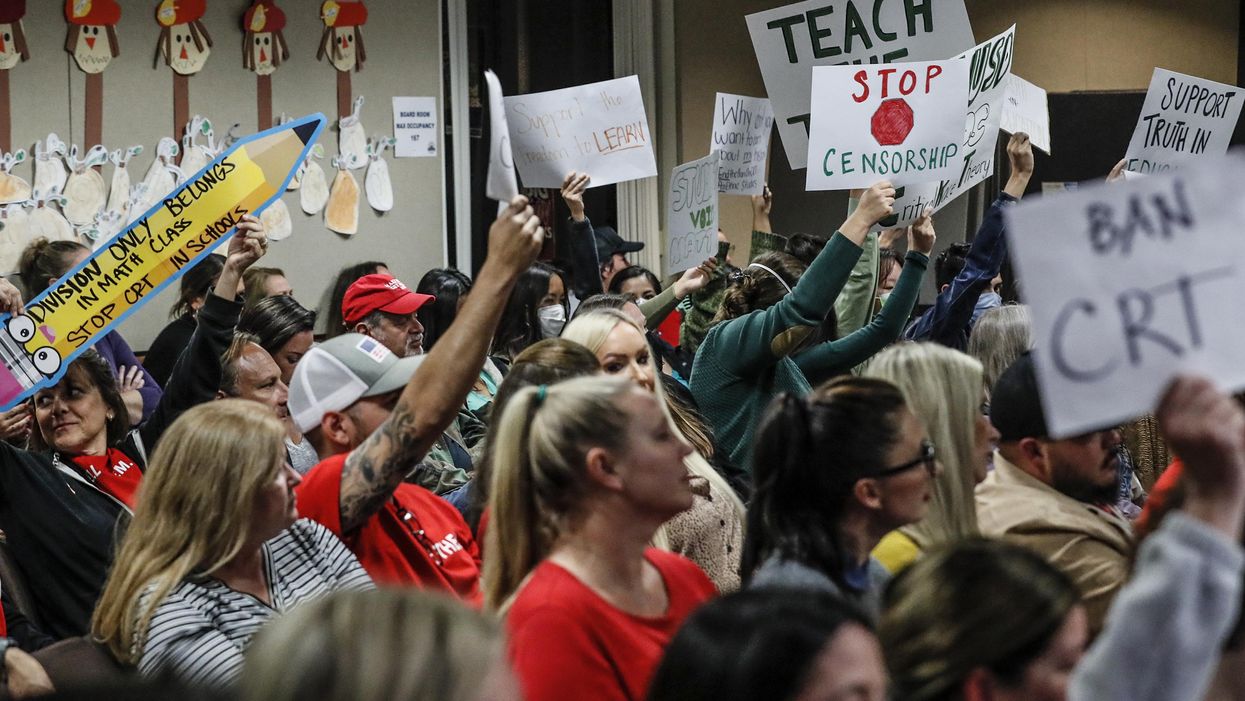Anderson edited "Leveraging: A Political, Economic and Societal Framework" (Springer, 2014), has taught at five universities and ran for the Democratic nomination for a Maryland congressional seat in 2016.
The fight between liberals and conservatives over critical race theory mirrors many fights between rival moral conceptions. In moral philosophy, the debate between retributivists and utilitarians over the topic of punishment has a similar structure. Retributivists argue that you should punish someone based on the crime and the kind of punishment the person deserves. Utilitarians argue that you punish someone, assuming they are convicted of a crime (or civil offense), in order to promote the greatest total good in society.
Utilitarianism is a form of consequentialism, which says that the right act is the one that promotes the best consequences. Retributivism is a form of deontology that is focused on duties we have to others based on actions taken in the past. Deontology is closely related to the rights tradition also, a tradition of moral and political theory that guarantees individuals rights (for example to freedom of speech and religion) regardless of how the expression of those rights, given a few exceptions, would affect other people.
Indeed, retributive theories of punishment are driven by past actions while utilitarian theories of punishment are driven by future consequences of actions. Moral theories do not all have the same tense.
The racism debate, likewise, is driven by the past for liberals, and certainly radicals, while it is driven by the future for conservatives. How so?
Conservatism is basically defined by the aim to conserve the values of the past. Although conservatives definitely ground their thinking in doctrines like the U.S. Constitution, they look at the problem of race from the perspective of what we can do in the present to create a better future for persons of color.
Conservatives believe that gross forms of injustice toward African Americans and other minorities have been eradicated by the Civil Rights Act of 1964, the Voting Rights Act of 1965, the war on poverty and affirmative action. In their view, everyone in America now has an equal opportunity to excel in education and employment. They therefore look to political and economic policies that will help all Americans regardless of race.
Liberals are animated by their belief that the wretched past treatment of African Americans by the white majority continues to harm them in the present. In their view, Black people (and other minorities) do not enjoy equal political and civil rights, and they do not have equal opportunities in education and employment. Appropriate public policies are needed to address this injustice.
Given the intensity surrounding the debate over critical race theory, a catch-all for any attempt to teach America's history of racism (and other forms of discrimination) in K-12, the time is right to find a way to unite the majority of the country recognizing that there will always be rival camps.
Thinking about the tense of morality is one way into this massive conflict. Everyone must achieve a balance in their own life between the concepts of the past, the present and the future. And although there is no one way to balance the three, living your life where 80 percent to 90 percent of your focus is on any of the three can create problems.
The same holds for a country.
Conservatives need to take the past more seriously, which means recognizing the pernicious way that racism has been threaded throughout our history as well as our social institutions today. Some of these conservatives need to be peeled away from the dominant conservative narrative and think more like centrists; indeed, only about 30 percent of Americans identify as Republicans. Some of them are moderates anyway now, and many independents who are inclined to vote Republican are moderates too.
The same dynamic happens on the Democratic side.
There is a group of Americans, probably in the range of 40 percent to 50 percent of adults of voting age, who are not driven by either the past or the future in their political thinking about race and most topics. Finding a way forward on the topic of race and racism requires a new middle. Rather than asking people to split the difference on policies, it could prove very productive if people found a better balance between past, present and future in their own thinking.
A just society should be neither driven by the past nor focused on the future from a poorly informed standpoint. It needs to be in the vibrant middle, finding a fair middle ground in the present that the majority can accept and embrace, one that is the basis for building a better, more just society in the future.




















